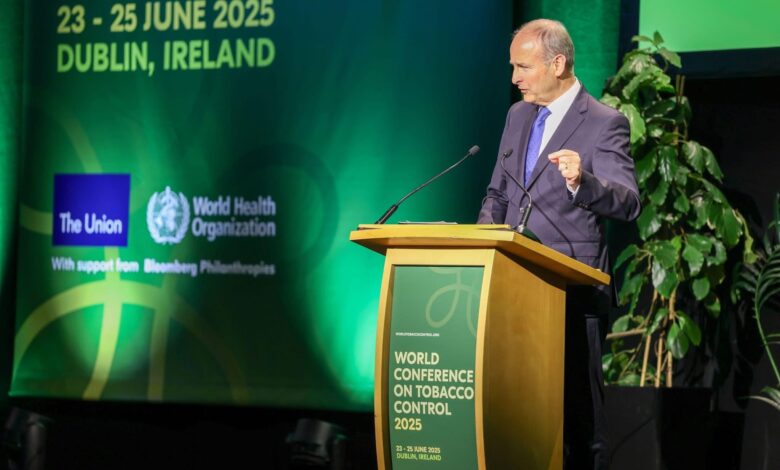Global Leaders Unite to End Tobacco Epidemic with Bold Dublin Declaration

Times24.net: The World Conference on Tobacco Control 2025 (WCTC2025) concluded today with a resounding global commitment to end the tobacco epidemic. Delegates from over 100 countries gathered in Dublin to endorse the historic Dublin Declaration—a five-point action agenda aimed at accelerating tobacco control efforts and ensuring a healthier, tobacco-free future for generations to come.
Held against the backdrop of rising global health and development challenges, WCTC2025 served as a dynamic platform for showcasing evidence-based solutions, youth and community-led advocacy, and high-level policy dialogues. The conference underscored that tobacco control remains a cornerstone of the global public health agenda and a critical component of sustainable development.
Conference Highlights Included, Evidence-driven policy dialogues, Youth and community-led forums, Powerful keynote sessions and Cross-sector partnerships for change.
The conference made a clear call to action: governments worldwide must act decisively and urgently to implement and enforce the WHO Framework Convention on Tobacco Control (WHO FCTC). The Dublin Declaration provides a clear and actionable framework for doing so.
The Dublin Declaration: Five Commitments to End the Tobacco Epidemic
1. Prioritizing the increase of excise taxes to decrease the affordability of all tobacco and non-medicinal nicotine products, establishing sustainable financing for tobacco control and other health promotion initiatives from revenue generated.
2. Recognizing the tobacco industry as the biggest barrier to global progress in tobacco control. Reject engagements with organisations working with, or funded by, the tobacco industry. Hold the tobacco industry liable for the harms it causes, including seeking compensation through legal actions.
3. Strengthening the monitoring and enforcement of a comprehensive ban on all forms of tobacco advertising, promotion, and sponsorship, including the depiction of tobacco in entertainment and digital media
4. Incorporating into tobacco control and environmental agendas the need to address the environmental consequences of tobacco cultivation, manufacturing, distribution, use, and post-consumption waste from tobacco and nicotine products.
5. Uniting with civil society, international organizations, and educational institutions to support the implementation of comprehensive tobacco control measures, guided by the fundamental human rights to the highest attainable standard of health.
As the conference concluded, public health leaders emphasized the urgency of turning commitments into action. “The Dublin Declaration is not just a roadmap—it’s a call to moral and political courage,” said one high-level delegate. “We cannot allow another generation to fall prey to an industry that profits from death and disease.”




